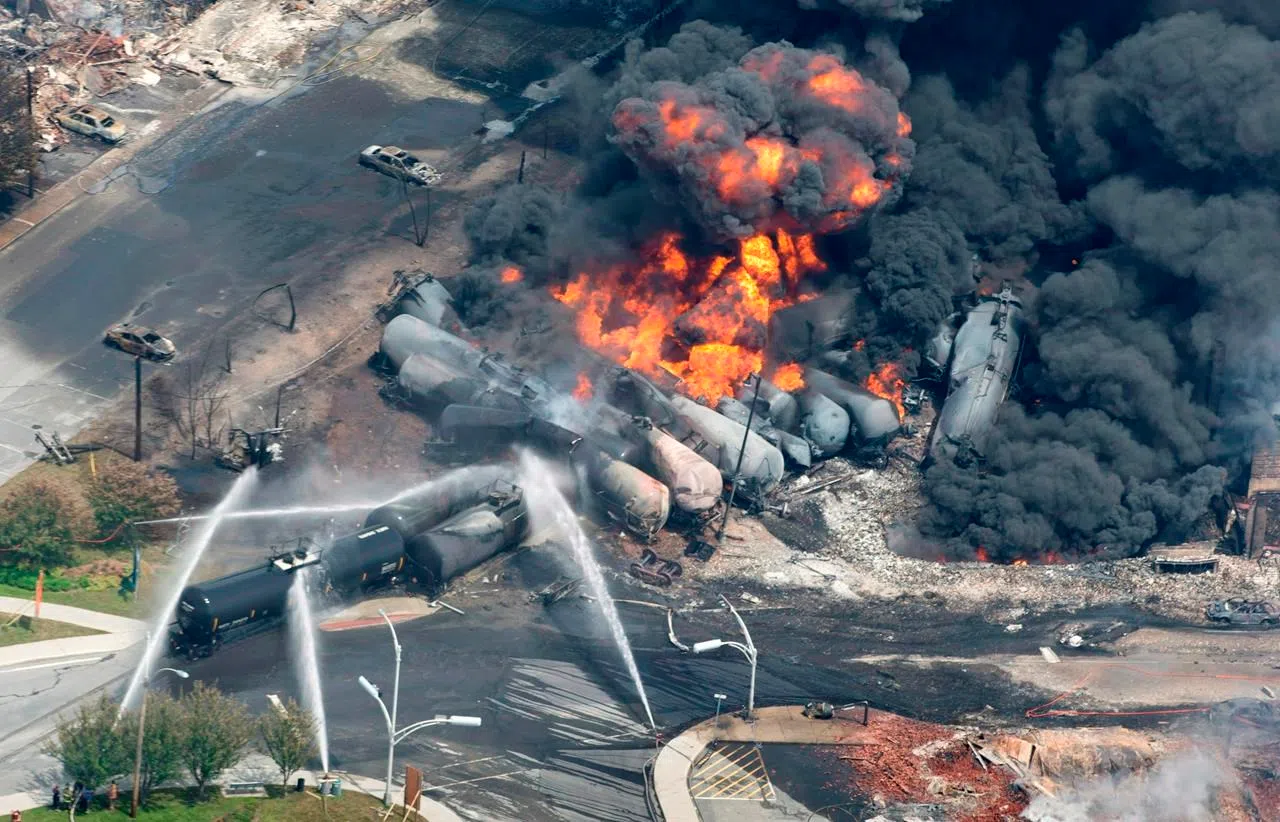
Human error or criminal negligence? Lac-Megantic criminal trial begins in Quebec
SHERBROOKE, Que. — Train driver Thomas Harding knows he’s partly at fault for the 2013 Lac-Megantic rail disaster that killed 47 people, but he was following procedure and the tragedy flowed from bad company policy, his lawyer said Monday on the first day of trial.
“Mr. Harding realizes he’s partly responsible for a very serious tragedy and that weighs on him a lot more heavily than the trial,” lawyer Thomas Walsh told reporters.
“Is it human error or criminal negligence? That’s what this case is about.”
Harding and two other ex-railway employees, traffic controller Richard Labrie and manager of train operations Jean Demaitre, are all facing one count of criminal negligence causing the death of 47 people.
